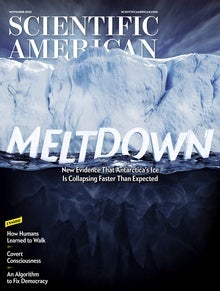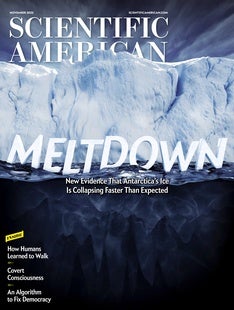 |
| October 18, 2022 |
Dear Reader,
As protests continue across Iran, the government has been blocking access to internationally-used apps and shutting down Internet access. This digital repression not only disrupts protesters' ability to communicate, but also lets the government push its citizens toward using a national intranet system with the goal of sidestepping the global Internet entirely. |
| | Sophie Bushwick, Associate Editor, Technology
| |
 |
| |
| |
| |
| |
| |
| |
| |
| |
| |
FROM THE STORE
 | | | |
| QUOTE OF THE DAY
 "The international community see this as an issue only for Iran. But the problem is: there are a lot of governments all around the world who want to violate our rights, and they learn from each other. What I'd like to see is people paying attention to what is happening as a threat to freedom, to the right to access to the Internet, and deal with it in that way." Amir Rashidi, director of digital rights and security at Miaan Group | |
FROM THE ARCHIVE
 | | | |
LATEST ISSUES
 |
| |
| Questions? Comments?  | |
| Download the Scientific American App |
| |
| |






















